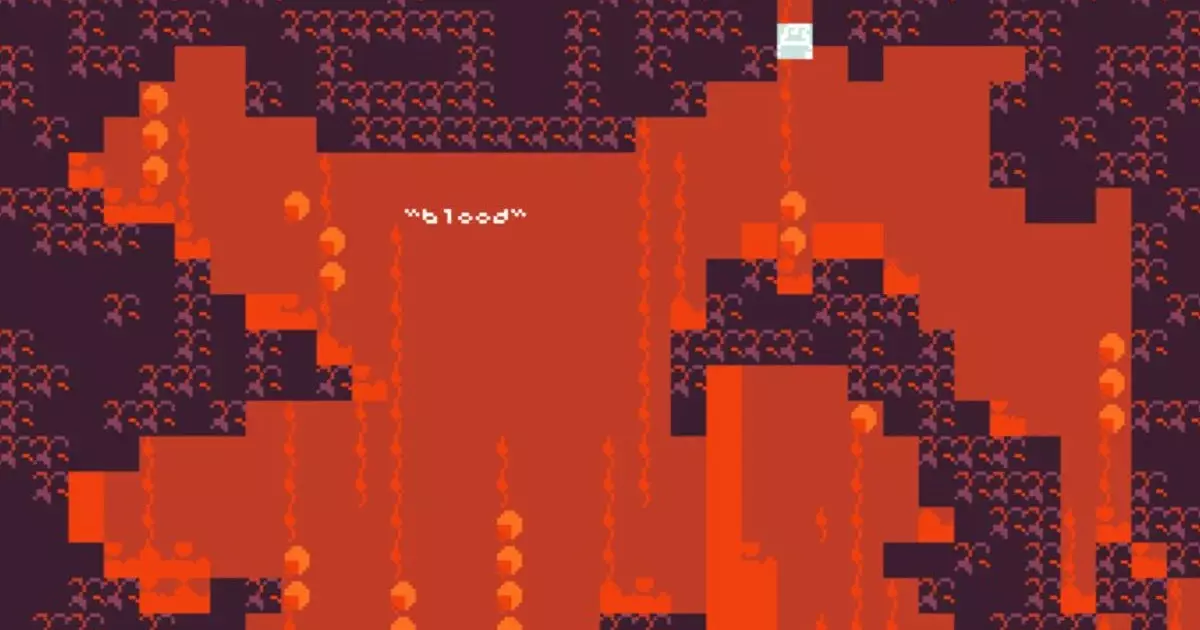In an era where gaming has become a vast ocean of trends and formulas, the announcement of a new title from Droqen, the mind behind the enigmatic ‘Starseed Pilgrim’, comes as a refreshing breeze. ‘The End Of Gameplay’ dares players to embrace chaos, inviting them to “kill gameplay” within a visually minimalist 2D platformer. This revolutionary approach taps into a growing niche that craves more than just escapism; it seeks an introspective experience that challenges the very concept of what a game can be.
The underlying premise sounds exhilaratingly cryptic: Droqen alludes to crafting an experience that distills the essence of gaming into an exploration of its uncharted territories. By shedding the chains of traditional gameplay mechanics, he encourages players to abandon their preconceived notions. Instead of aiming for victory or mastery, the experience beckons participants to revel in the catharsis of absurdity, navigating unstructured environments that mirror the perplexing nature of life itself.
Digging Deeper: What Is Gameplay?
Droqen’s mission to dismantle the very fabric of gameplay is both ambitious and provocative. “Gameplay,” a term used almost as casually as “graphics” or “story,” represents a multitude of expectations. It holds players captive with its promise of structure and challenge. However, by presenting the challenge of “killing” it, Droqen propels us into a realm where players are encouraged to redefine their personal gaming experiences. What does it mean to engage with a game when the ultimate goal is to eliminate the concept of competition and narrative altogether?
Much like the roots of a sprawling mycorrhizal network, the idea of gameplay is entangled with decades of industry standards, evoking a sense of comfort yet stifling diversity. Droqen’s quest, though risky, piques curiosity. Can one genuinely “kill” gameplay, or will the remnants persist in seeking validation through highs scores and narratives? This raises essential questions about the very identity of the gaming experience.
Capturing the Indescribable
The alluring ambiguity of ‘The End Of Gameplay’ resonates with the artistic tendencies of indie games. It falls into a broader category of creators attempting to share their unique visions without the constraints of commercial success. The adventurous spirit shared by Droqen and others—like Terry Cavanagh and Stephen “thecatamites” Gillmurphy—celebrates the ephemeral nature of games by packaging unsettling yet profound thoughts and reflections into compact anthologies. These projects invite players to deeply engage with themes that stretch beyond the screen—sparking connections and evoking emotions that linger long after the game has ended.
Droqen’s previous work, ‘Starseed Pilgrim’, was a reflection of this ethos, praised for its elusive appeal, yet often deemed too obscure for mainstream acceptance. Critics of the game found it challenging to articulate its value, frequently echoing sentiments of helplessness when faced with its ambitious goals. Yet, this is precisely what makes the experience rich—not clarity, but the innate thrill of discovery.
The Brave New World of Non-Linear Experiences
Anticipation builds as we await the release of ‘The End Of Gameplay’, set for the “full flower moon” on May 12th—a date that almost feels imbued with a sense of ritualistic rebirth. The choice to release such a game on a significant lunar event speaks volumes about the creator’s intent to capture a transformative journey.
In an age where gaming often feels formulaic, Droqen’s willingness to throw caution to the wind inspires others in the indie scene to explore the unconventional realms of game design. As players, we must keep our minds open and our expectations skewed—ready to engage with an experience that challenges the mundane binary of success and failure.
A Call to the Brave
Droqen boldly asserts that participation in this revolutionary experience should be embraced by a select few, hinting at an exclusivity reminiscent of underground art movements. It’s a call to action for those willing to plunge into the depths of creative exploration, where outcomes may be uncertain, but rewards lie in the territory of personal revelation.
With ‘The End Of Gameplay’, we stand on the precipice of a new gaming philosophy, one that encourages us to not merely engage but to exist within the chaotic poetry of play. As we move forward, this promising title could very well redefine what it means to interact with a game, making it an essential exploration for gamers who seek deeper connections and more fulfilling experiences in their digital journeys.

